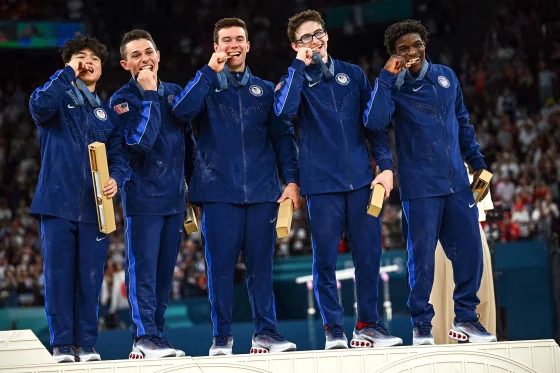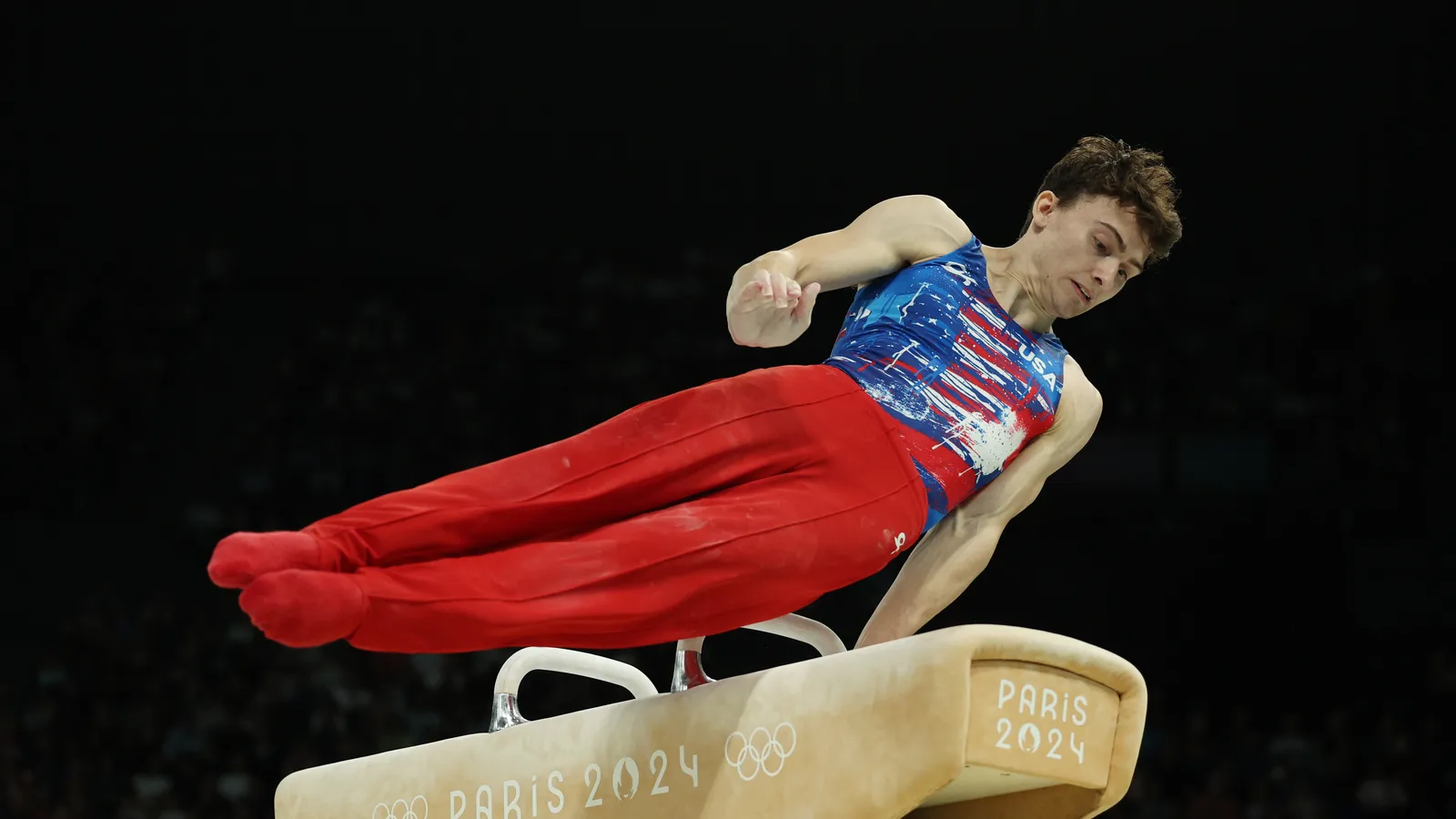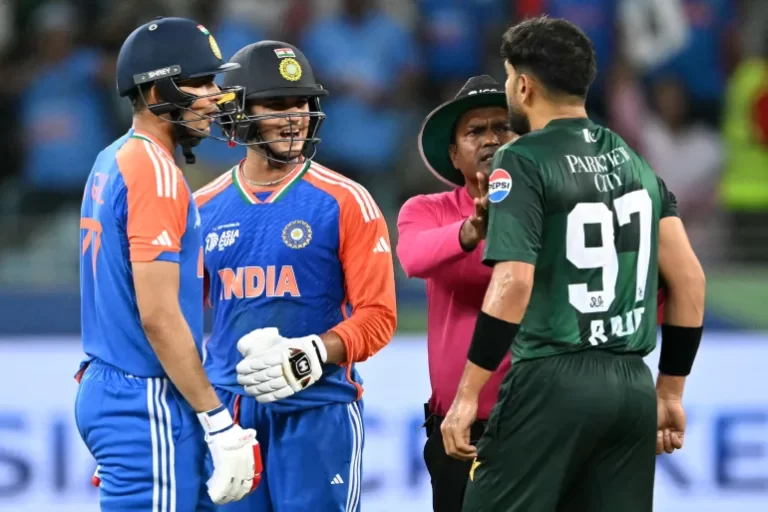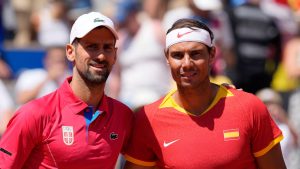American men hadn’t medaled in Olympic gymnastics as a team since 2008. Determined to change this, USA Gymnastics hired a specialist, Stephen Nedoroscik to bolster their chances.
The gamble paid off on Monday when the U.S. men’s team clinched the bronze medal in the team final at the Paris 2024 Olympics. This marks a significant milestone, being their first team Olympic medal in 16 years.
Stephen Nedoroscik: The Standout Performer
Stephen Nedoroscik was a standout in this achievement. Qualifying for the Olympic team based solely on his exceptional pommel horse routine, Stephen Nedoroscik demonstrated why he was a unique yet crucial selection.
Although he competed in only one of the six events typically expected of high-level gymnasts, his performance was commendable. Forced to wait for nearly three hours before his turn, Nedoroscik remained focused, meditating before his routine.
When his moment came, he delivered flawlessly, securing the bronze medal for Team USA.
The Value of Specialization
Nedoroscik’s Olympic selection was somewhat controversial due to his specialization in just one event. However, his score on the pommel horse was so high that it significantly boosted the team’s overall potential.
Stephen Nedoroscik, a Penn State alum, provided Team USA with its best shot at both team and individual medals. He is the only American man who qualified for an individual apparatus final in Paris, though Fred Richard and Brady Malone have also shown strong performances in other events.
Team Performance and Strategy

In the men’s team final, each squad had three gymnasts competing across six disciplines: floor exercise, pommel horse, still rings, vault, parallel bars, and horizontal bar. Every score contributed to the team’s total. Thus, Nedoroscik’s outstanding pommel horse performance was especially crucial.
NBC Sports gymnastics analyst Tim Daggett highlighted how Nedoroscik’s strength in the pommel horse compensated for the U.S. team’s relative weaknesses in other areas.
Closing the Gap with Top Teams
The U.S. men’s gymnastics program has worked hard over the past three years to increase its start values, or difficulty scores, to compete with top teams like Japan, China, and Great Britain.
This effort was evident in Paris, where Japan took gold, China silver, and Great Britain finished fourth. Nedoroscik’s inclusion in the team was a strategic move to address the team’s difficulty gaps.
High Expectations and Increased Skills
High-performance director Brett McClure expressed confidence in the team’s potential before the Paris Olympics, aiming for a podium finish.
The U.S. team’s skills have increased in difficulty by over a point since last year’s world championships, where they also won a historic bronze medal.
Contrast with the Women’s Team
The men’s Olympic medal drought contrasts sharply with the success of the U.S. women’s team, who have won a team medal at every Olympics since 1992.
The women’s team has consistently performed the world’s most difficult skills, providing a buffer against errors. The U.S. men, while lacking this advantage, showed they could compete with the best when executing well.
Near Flawless Performance
On Monday, the U.S. men were nearly flawless, while other top teams suffered falls. In the Tokyo Olympics three years ago, the U.S. finished fifth.
The absence of Russian gymnasts in Paris due to the ongoing war in Ukraine also impacted the competition dynamics.
Nedoroscik’s Pre-Event Routine
Before the men’s gymnastics team final at the Paris Olympics, Nedoroscik showcased another talent by solving a Rubik’s Cube in 9.32 seconds, a hobby of his. This impressive skill seemed a good omen for the night ahead.
Nedoroscik’s smooth and confident performance on the pommel horse in the final rotation secured the bronze medal for Team USA, marking a personal and team triumph.
A Moment of Triumph
Reflecting on the experience, Stephen Nedoroscik described it as the greatest moment of his life. His journey, from focusing solely on the pommel horse since high school to becoming an Olympic medalist, is inspirational.
Despite doubts about his ability to perform under pressure, Nedoroscik proved his critics wrong by delivering when it mattered most.
In the end, Nedoroscik’s dedication and exceptional performance highlighted the importance of specialization and the strategic decisions that led Team USA back to the Olympic podium.






